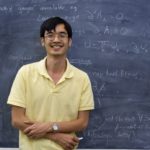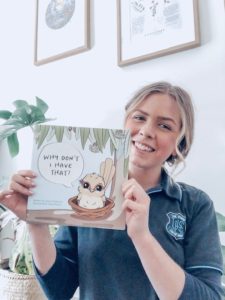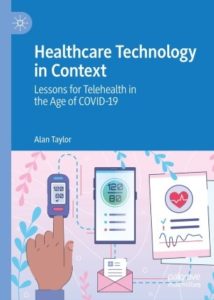
A Flinders alumnus is the President’s choice, while Flinders experts contribute to two new books on comparison culture and telehealth, and a competition win results in innovative technology for Flinders consortium.
Presidential selection for maths alumnus

Professor Terence Tao, UCLA Professor of Mathematics and Flinders University alumnus, has been selected by US President Joe Biden as one of 30 of America’s most distinguished leaders in science and technology who will serve on his President’s Council of Advisors on Science and Technology.
Professor Tao, who was awarded the Fields Medal in 2006 (which is often described as the ‘Nobel Prize in mathematics’), has joined this council to advise the US president on matters involving policy affecting science, technology and innovation. Professor Tao graduated from Flinders with a Master of Science in 1992 at the age of 17.
His Wiki page says he has been the author or co-author of more than 300 research papers and is widely regarded as one of the greatest living mathematicians.
Flinders experts help tackle dangerous culture
Professor Kate Douglas, from the College of Humanities, Arts and Social Sciences, has provided feedback and assistance for a local Year 11 student, who is writing a new children’s book as part of her Research Project.

After a diagnosis of anorexia nervosa in her teens, Taylor is focusing her research on how a children’s book can be an effective early intervention tool to raise awareness about the danger of comparison culture. Taylor identifies that this issue was a prominent factor in her eating disorder, and hopes her book will one day be available for families, and in kindergartens and primary schools, to start the conversation before children are even exposed to the concept of ‘perfection’.
Copies of the book, Why Don’t I Have That, are available on Etsy, with profits from all sales going to Breakthrough Mental Health Research Foundation. Taylor also records herself reading her book for children, which you can view on the book’s Facebook page.
Proud mum Hayley Anderson, a member of the SWIRLS team here at Flinders, says she is inspired by her daughter for creating such a positive outcome out of an awful situation.
“At age 16, for her to be willing not only to share her vulnerability, but to use it as a platform to raise awareness on a larger scale is remarkable. I am so inspired by how she has turned the most harrowing experience of her life into something so positive.”
Taylor also thanks Professor Tracey Wade, author of Overcoming Perfectionism, a book she calls one of the most helpful tools in her recovery.
Is telehealth the future of medicine?
 Dr Alan Taylor from the College of Medicine and Health has had a new book published by Palgrave Macmillan.
Dr Alan Taylor from the College of Medicine and Health has had a new book published by Palgrave Macmillan.
Healthcare Technology in Context: Lessons for Telehealth in the Age of COVID-19 explores the mechanisms influencing telehealth services in the context of the Australian and Brazilian universal healthcare systems amid the outbreak of the COVID-19 pandemic.
Competition win will progress research
Emeritus Professor David Catcheside and Emeritus Professor Leigh Burgoyne, both from the College of Science and Engineering, have won Millennium Science’s Blue Pippin competition to help understand how tree-fungus symbioses adapted to drying climates.
Professor Catcheside leads a consortium of scientists based at five different institutions in Australia and New Zealand who are seeking to understand how many different families of ectomycorrhizal mushrooms gave rise to truffles doing the same job. For this they need to sequence fungal genomes to identify the changes involved. Most ectomycorrhizal fungi defy pure culture and DNA from fruiting bodies is often part degraded due to insect damage initiating necrosis.
As winners of the competition, the consortium will receive a high pass electrophoresis cassettes of Sage Science BluePippin which will enable them to remove short DNA fragments that compromise long read sequencing needed for assembling the high-quality genomes required to understand ectomycorrhizal biology.

